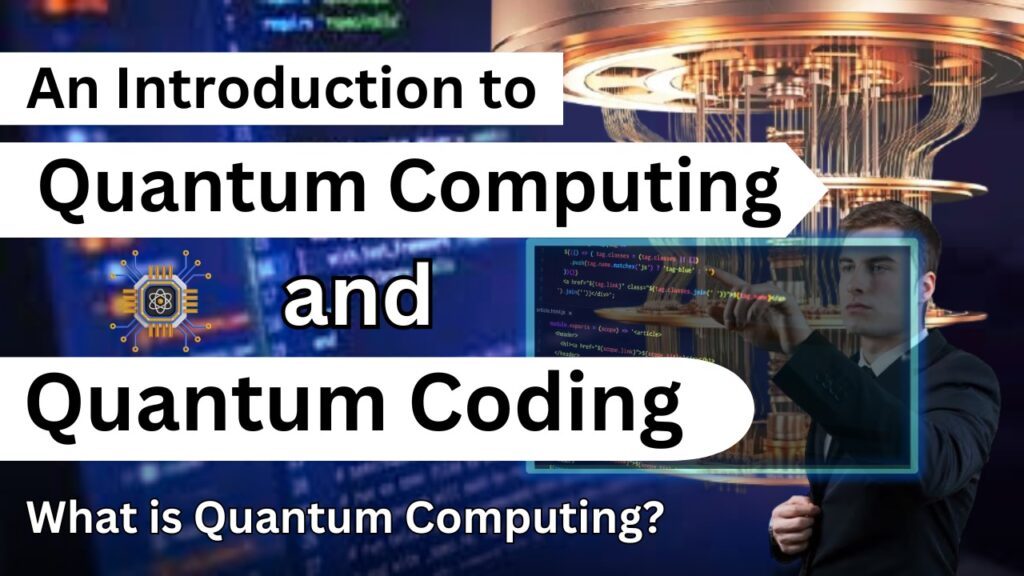Quantum computing is revolutionizing the landscape of computational science. Unlike classical computing, which relies on bits as the smallest unit of information, quantum computing uses quantum bits or qubits. This article delves into the basic principles of quantum computing, the significance of quantum coding, and the implications of these technologies for the future.
1. Introduction
The advent of quantum computing marks a significant leap in technological advancement, promising to solve problems that are currently beyond the reach of classical computers. At the heart of quantum computing lies quantum mechanics, a fundamental theory in physics that describes the physical properties of nature at the scale of atoms and subatomic particles.
2. The Basics of Quantum Computing
2.1 What is Quantum Computing?
Quantum computing harnesses the peculiar principles of quantum mechanics, including superposition, entanglement, and quantum tunneling, to process information in ways that classical computers cannot.
- Superposition: In classical computing, a bit is either 0 or 1. However, a qubit can be in a state of 0, 1, or any quantum superposition of these states. This means that a quantum computer can perform many calculations at once, exponentially increasing its processing power.
- Entanglement: Quantum entanglement is a phenomenon where two qubits become interconnected such that the state of one qubit directly influences the state of the other, regardless of distance. This interconnection enables the creation of complex computational processes that are more powerful than what is possible with classical computing.
- Quantum Tunneling: This principle allows particles to pass through barriers that they typically couldn’t in the classical sense. which can be leveraged in quantum algorithms to explore multiple solutions simultaneously.
2.2 How Does a Quantum Computer Work?
A quantum computer uses quantum gates to perform operations on qubits. These gates are the quantum analog of classical logic gates but can process multiple inputs simultaneously due to the qubits’ ability to exist in superposition. The outcome of quantum computations is probabilistic rather than deterministic, requiring algorithms that are designed to maximize the likelihood of obtaining a correct result.
3. Quantum Coding: The Language of Quantum technology
3.1 What is Quantum Coding?
Quantum coding refers to the process of writing algorithms that can be executed on a quantum computer. These algorithms are fundamentally different from classical algorithms, as they must account for the probabilistic nature of quantum computation and the unique properties of qubits.
3.2 Key Quantum Algorithms
- Shor’s Algorithm: A quantum algorithm for integer factorization that underpins the security of many cryptographic systems. Shor’s algorithm can factor large numbers exponentially faster than the best-known classical algorithms, posing a significant threat to current encryption methods.
- Grover’s Algorithm: This algorithm provides a quadratic speedup for unstructured search problems, where the goal is to find a specific item within an unsorted database. While not as dramatic as Shor’s algorithm, Grover’s algorithm still represents a significant improvement over classical methods.
3.3 Quantum Error Correction4. Applications of Quantum Computing
4.1 Cryptography
Quantum processor has the potential to break existing cryptographic systems, but it also offers the possibility of creating new, more secure methods of encryption. Quantum key distribution (QKD) is a technique that uses quantum mechanics to securely exchange encryption keys, making it virtually impossible for eavesdroppers to intercept the keys without being detected.
4.2 Drug Discovery and Material Science
Quantum computers can simulate molecular structures and chemical reactions with unparalleled accuracy, enabling breakthroughs in drug discovery and material science. These simulations could lead to the development of new materials with unique properties and more effective drugs.
4.3 Optimization Problems
Many complex optimization problems, such as supply chain management and financial modeling, could be solved more efficiently with quantum computers. These machines can evaluate many possible solutions simultaneously, finding the optimal solution much faster than classical computers.
5. Challenges and the Future of Quantum Computing
5.1 Technical Challenges
The development of practical quantum computers faces several challenges, including maintaining qubit coherence, error rates, and the need for extremely low temperatures to maintain quantum states. Furthermore, scaling quantum computers to a level where they can outperform classical computers in a wide range of tasks is still a significant hurdle.
5.2 Ethical and Security Concerns
The power of quantum computing raises ethical and security concerns, particularly in the field of cryptography. The ability of quantum computers to break current encryption standards could lead to significant breaches of privacy and security. On the other hand, the development of quantum-resistant encryption methods is an active area of research that could mitigate these risks.
5.3 The Future of Quantum Computing
Despite the challenges, the future of quantum computing is promising. Governments and private companies are investing heavily in quantum research, and significant progress is being made. In the coming decades, we may see quantum computers become a critical tool in fields ranging from quantum artificial intelligence to climate modeling.
6. Conclusion
Quantum computing represents a paradigm shift in how we approach computation. With the potential to solve problems that are currently unsolvable, quantum computers could revolutionize industries and lead to unprecedented technological advancements. As the field of quantum computing continues to evolve, quantum coding will play an essential role in unlocking the full potential of these powerful machines.
